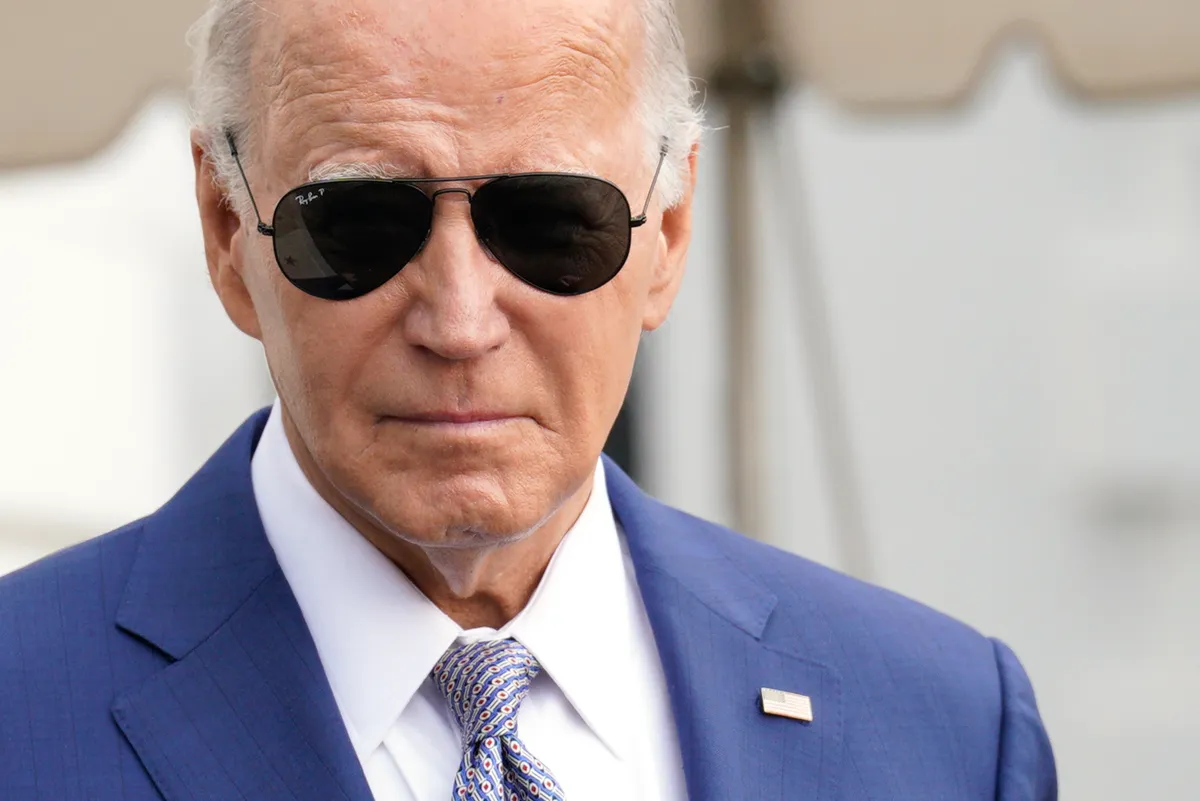The 48 Hours When Joe Biden Saved Us From World War III
We at the Washington Monthly may have published our Presidential Accomplishment Index issue a couple of weeks too early.
In the index, comparing the accomplishments of Joe Biden and Donald Trump, we already gave Biden the advantage on national security and diplomacy.
But his greatest successes on those fronts happened last Friday and Saturday.
Biden successfully pressured Israel to launch a minimalist military response to Iran’s drone attack.
Then he convinced Speaker of the House Mike Johnson to put Ukraine aid legislation on the floor, despite the risk to Johnson’s job, where it passed with a big bipartisan vote.
We may have just witnessed the most consequential and most expertly managed 48 hours of Joe Biden’s presidency.
More on that shortly, but first, here’s what’s leading the Washington Monthly website:
***
The Judge Tells Donald Trump to Sit Down: Contributing Editor Jonathan Alter delivers a dispatch from Day Four of the Trump hush money trial. Click here for the full story.
Trump Vows to Crush the Civil Service, but He’s Not the First President to Try: Editor Will Norris looks at the long history of Republican presidents who sought to undermine the federal bureaucracy. Click here for the full story.
The Supreme Court Takes On Homelessness. What Could Go Wrong?: Legal Affairs Editor Garrett Epps warns the high court could allow cities to criminalize sleeping outdoors, even when there is no public shelter option. Click here for the full story.
Why the Trump Trial Is Like a Bullfight: James D. Zirin, a former federal prosecutor, explores the three stages of the hush money trial. Click here for the full story.
***
In the last several months, Republicans have spun a narrative that the Russia-Ukraine war and the Israel-Hamas war prove that Biden has set the “world on fire.” In January, Trump posted on social media that “we are on the brink of World War 3.” In February, he told the Conservative Political Action Conference, “They’ll soon have us losing World War III.”
But Biden is far from the first American president to deal with difficult global conflicts involving the Middle East and Russia.
And we just saw Biden effectively use his influence to contain these conflicts so they don’t lead to a World War III.
Israel and Iran are now deescalating and Ukraine is better positioned to keep Putin in check behind his own border. (Check out Tamar Jacoby’s Monthly dispatch from Poland about fears of Russian invasion.)
In a New York Times report on why “Israel abandoned plans for a much more extensive counterstrike on Iran,” we learned that the “turning point … was an early-morning phone call between Prime Minister [Benjamin] Netanyahu and Mr. Biden, during which the American president encouraged the Israeli leader to treat the successful defense [of Iran’s attack on Israel] as a victory that required no further response … Mr. Netanyahu emerged from the call opposed to an immediate retaliation.”
Biden has been heavily criticized for remaining too close to the Israeli prime minister while being unable to constrain Israel’s military response to Hamas’s October 7 attack. But the value of maintaining that relationship is now clear. Without it, Israel and Iran could be lobbing more missiles at each other, inflicting widespread casualties, and drawing other countries into their conflict.
We also recently learned how Speaker Johnson evolved from an opponent of Ukraine aid to a proponent so stout he bucked the majority of his own House GOP Conference.
Politico detailed “a White House strategy focused on slowly courting Johnson behind the scenes while letting him find his own path to a solution.”
The long game from the Biden administration involved applying “indirect pressure on Johnson, stressing the seriousness of the situation to Ukraine-sympathetic GOP lawmakers” as well as “several closed-door briefings for Johnson and other lawmakers to update them on the deteriorating situation in Ukraine, starting just days after Johnson became speaker.”
As I wrote in the Monthly’s latest print issue, Biden lapped Trump when it came to enacting their respective legislative agendas because Biden took bipartisanship more seriously.
A president more skeptical of the ability of the opposition party to do the right thing would not have considered trying to make an appeal to Johnson on the merits of the Ukraine issue. He would have assumed Johnson would purposefully set the world ablaze to better feed Trump’s talking points.
Biden did not make that assumption, and in turn, notched his biggest bipartisan accomplishment so far.
SHARE THE MONTHLY NEWSLETTER
Spread the word! Forward this email newsletter to your friends, or share the online version from Substack.
FIND THE MONTHLY ON SOCIAL
We’re on Twitter @monthly
We’re on Threads @WAMonthly
We’re on Instagram @WAMonthly
We’re on Facebook @WashingtonMonthly
Best,
Bill



